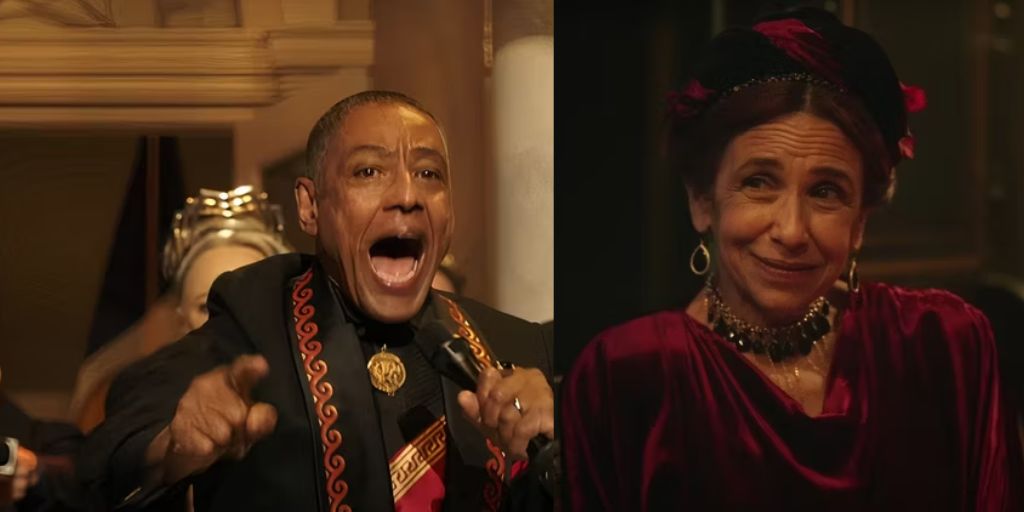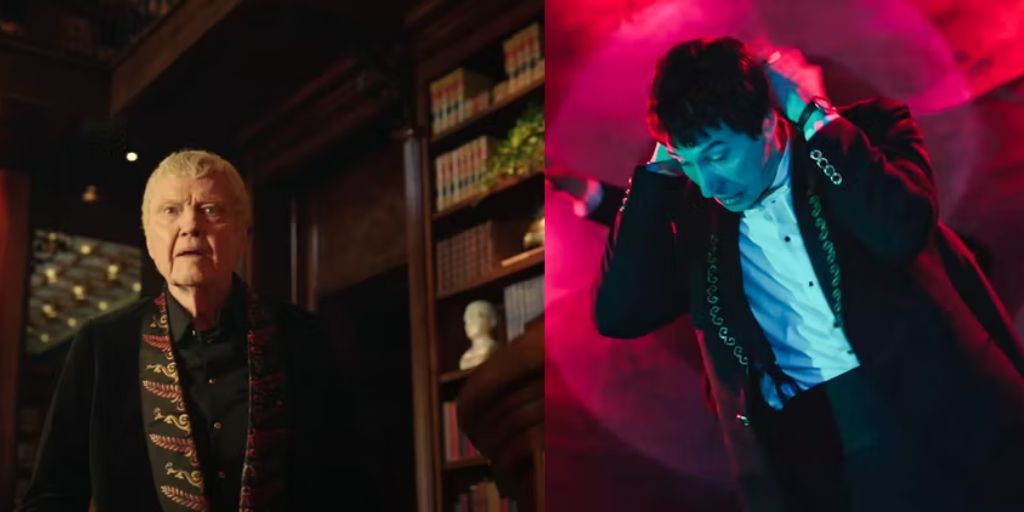In the film community, no movie has sparked as much talk, interest, and disagreement as Megalopolis. This dream project by Francis Ford Coppola has been in his mind for about 40 years.
He has used his reputation and earnings from the wine business to finance what could be the boldest and most experimental movie seen in theaters lately.
From the beginning, it was clear that this film, which breaks the usual rules of cinema and might not appeal to most viewers, was unlikely to make money or receive much praise.
However, it aimed to stay true to Coppola’s ambitious vision and challenge audiences with its mix of brilliance and clumsiness.
Unsurprisingly, a movie as wild and daring as Coppola’s 2024 sci-fi/fantasy drama was bound to have an ending that is both touching and confusing, in true Megalopolis style.
What Is Francis Ford Coppola’s Megalopolis About?
Megalopolis follows a clever but unpredictable architect named Cesar Catilina (played by Adam Driver). He has conflicts with an unpopular mayor, Franklyn Cicero (played by Giancarlo Esposito), about how to rebuild New Rome and prepare it for the future.
The film is almost impossible to critique because of its boldness. It has a unique visual style, shifts in tone between serious and absurd, and performances that are deliberately exaggerated, which go against our basic ideas of what makes a good film.
Moreover, no one wants to criticize Francis Coppola, who has been proving his critics wrong for 50 years. The film’s main story centers around Cicero’s daughter, Julia (played by Nathalie Emmanuel), who is torn between her father and her lover, Cesar.
While this story seems familiar, Megalopolis touches on themes of ancient history, the media’s role in culture and politics, and the rise of fascism. The film’s complex story reflects Coppola’s unclear storytelling, but his ambition keeps the film interesting to analyze.
How Does Megalopolis End?
After a satellite from the Soviet Union crashes into New Rome and destroys much of the city, Cesar starts building Megalopolis, a perfect city that will supposedly advance civilization into a new era.
In the chaos, Cesar’s cousin, Clodio (played by Shia LaBeouf), leads protests using fascist ideas, which causes violence in the streets.
Clodio, along with sensational TV reporter Wow Platinum (played by Aubrey Plaza), tries to take power from Cesar’s uncle, Crassus (played by Jon Voight), who funds Megalopolis. Crassus stops this takeover by killing Platinum and injuring Clodio.
Cesar confronts the protesters and convinces them with an emotional speech about creating a better world for future generations. After Julia asks her father to let Cesar create a brighter future for his granddaughter, Cicero reconciles with Cesar.
He finally allows Cesar to finish his ambitious new city. During the grand reveal of Megalopolis, Cesar, Julia, Cicero, and the baby Sunny Rose stand on stage. Cesar, as he often does in the film, freezes reality by asking Julia to do so.
The only one who moves is Cesar and Julia’s baby daughter. Coppola focuses on the baby while time stands still around her.
The film then shows a title card with a new pledge of allegiance, not just to one nation, but to the entire world. While Megalopolis can be confusing with its storytelling, its message is clear: create a better world for your children and future generations.
The Big Ideas Behind the Ending of Megalopolis and Francis Ford Coppola’s Career
The lead-up to Megalopolis’ release was as strange as the film itself. It included manipulated quotes in the trailer and interactive screenings where an audience member could ask Cesar a question at a press conference. The film represents both a victory for artistic freedom and a bold gamble by Francis Ford Coppola.

Many viewers, even those who liked the film, feel unsure about what they just saw. It is not surprising that Megalopolis ends with an unusual and heartfelt end that reflects the 85-year-old director’s ambitious, if lofty, vision. For Coppola, making movies is part of his family.
His sister, Talia Shire, his nephew, Jason Schwartzman, and his granddaughter, Romy Mars, all have small roles in this film. His production company, American Zoetrope, was created to be a family of artists without ties to Hollywood.
Despite its chaotic nature, Coppola’s sincerity as an artist shines through in Megalopolis. What better way to show genuine feelings than by featuring an innocent baby?
Even before the disaster, Cesar strongly argued for a better society, refusing to compromise his vision for the future, despite the critics. Mayor Cicero and others dismissed his ideas as mere noise, labeling him a reckless artist with a big ego.
Coppola, who has clashed with studio executives multiple times, clearly sees himself in Cesar, making him a representation of his own struggles. Cesar’s extraordinary abilities get caught up in a fight for power among the main characters, each seeking control.
In the third act, the characters confront what is most important to them. For Cicero, it is love and approval from his daughter, who has chosen to support Cesar.
As Claudio starts a violent takeover of Crassus’s business, Cicero suddenly realizes that Cesar’s vision comes from a genuine desire to improve society, which needs radical change to survive.
This heartfelt idea, while touching, feels rushed. With Cicero and Crassus representing the studios and investors who stopped Coppola from making Megalopolis for many years, the director clearly doubts these authority figures. He shows them as obstacles to civilization’s progress.
However, after a brief motivational talk from his daughter, where she explains that Megalopolis aims to create a sustainable future for his granddaughter, Cicero starts to understand. He begins to support Cesar’s grand plan.
The emotional push for family values aligns with Coppola’s sincere writing and directing style, but it clashes with his portrayal of these authority figures as harsh tyrants. Coppola reveals his perspective with this unusual ending. The characters lack depth and are more like ideas he has been considering for 40 years.
Megalopolis, which grew from an abstract concept into a concrete film (another aspect that feels rushed in the third act), is shown as a gift from Cesar, who will be remembered as a spiritual leader of this new place.
The ending is surprisingly simple compared to the rest of the film, serving as a personal victory for Coppola, who, like Cesar, made his dream project happen against all odds.

The ending of Megalopolis is both emotionally powerful and confusing. It reflects the spirit of the whole film. You will think about every choice made by Francis Ford Coppola, but the ending, which features a baby symbolizing the future of society, stands out as the most intriguing decision.
The grandness of this final moment reflects the sincere, personal touch that is present throughout Megalopolis. Ultimately, the strong emotions at the center of this wild cinematic experiment make it a valuable artistic work.
In a time when many expensive blockbusters often have poor special effects and lack a distinct voice, viewers can see both the money spent on each scene and visual effect, as well as the personal reflections of Coppola’s life and long career as a filmmaker in Megalopolis.




